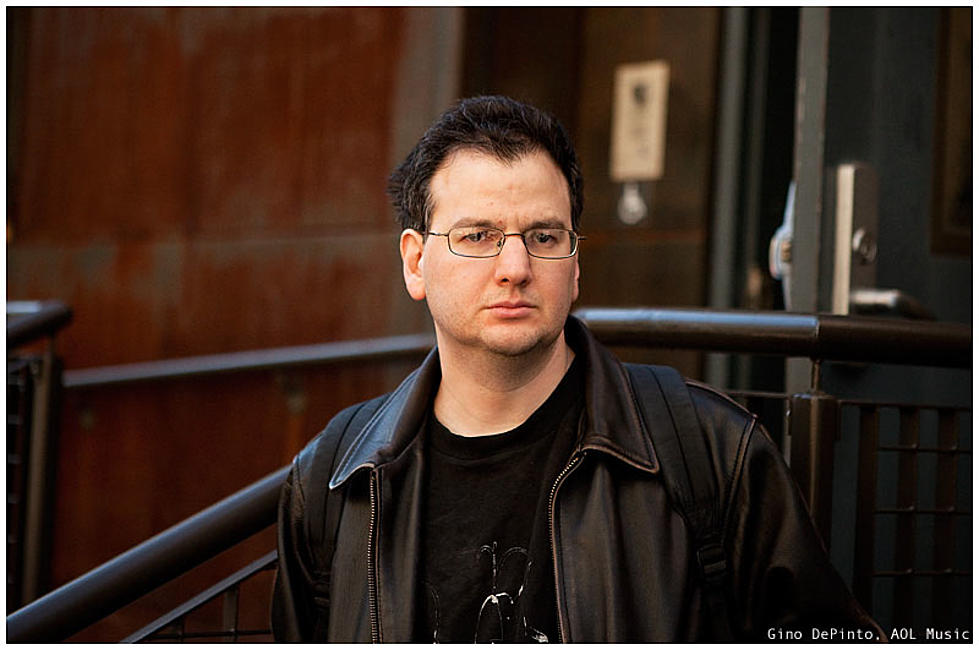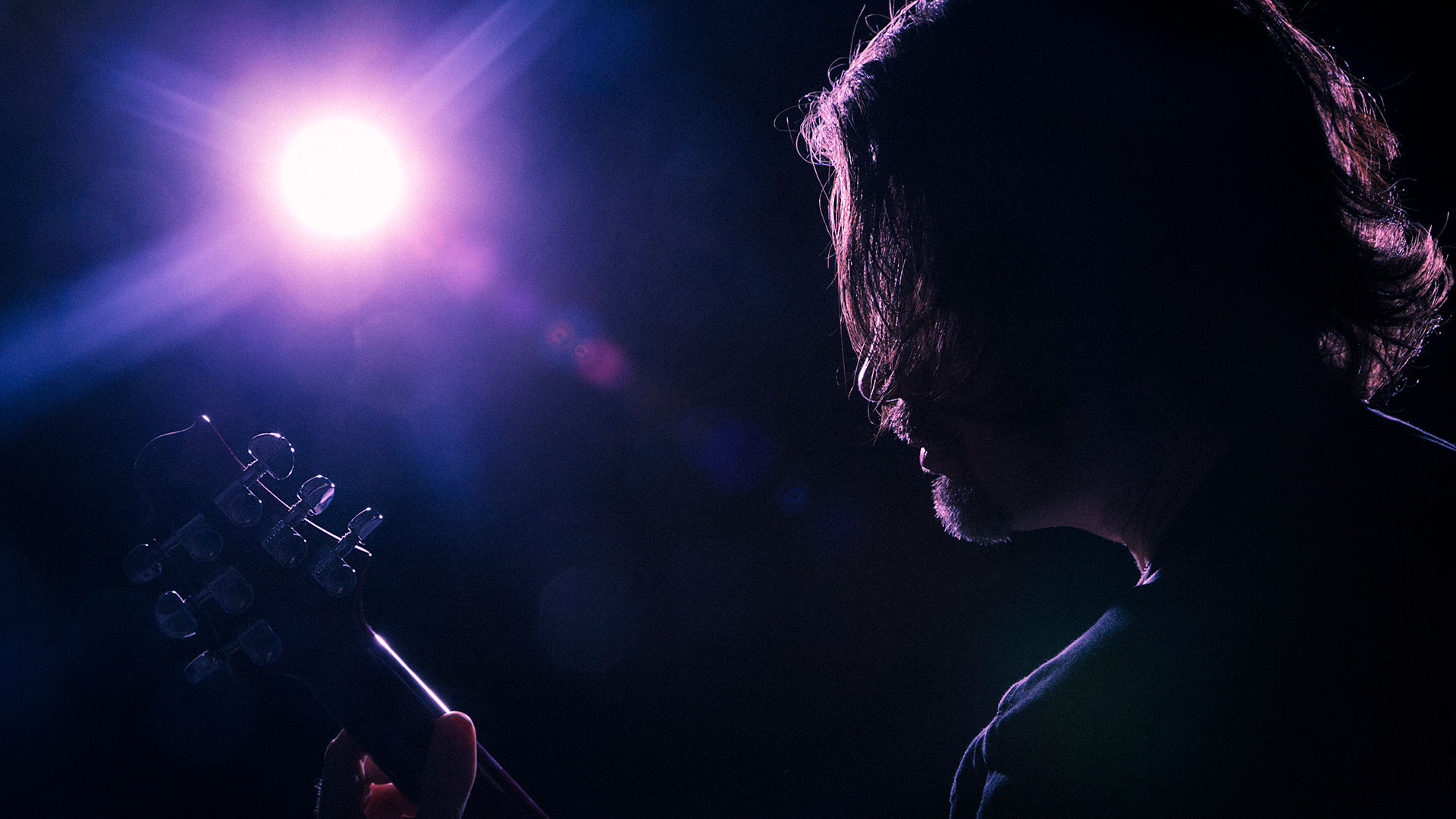Lamb of God's Mark Morton and Willie Adler Talk Burn the Priest's New Album, 'Legion: XX'
All the latest guitar news, interviews, lessons, reviews, deals and more, direct to your inbox!
You are now subscribed
Your newsletter sign-up was successful
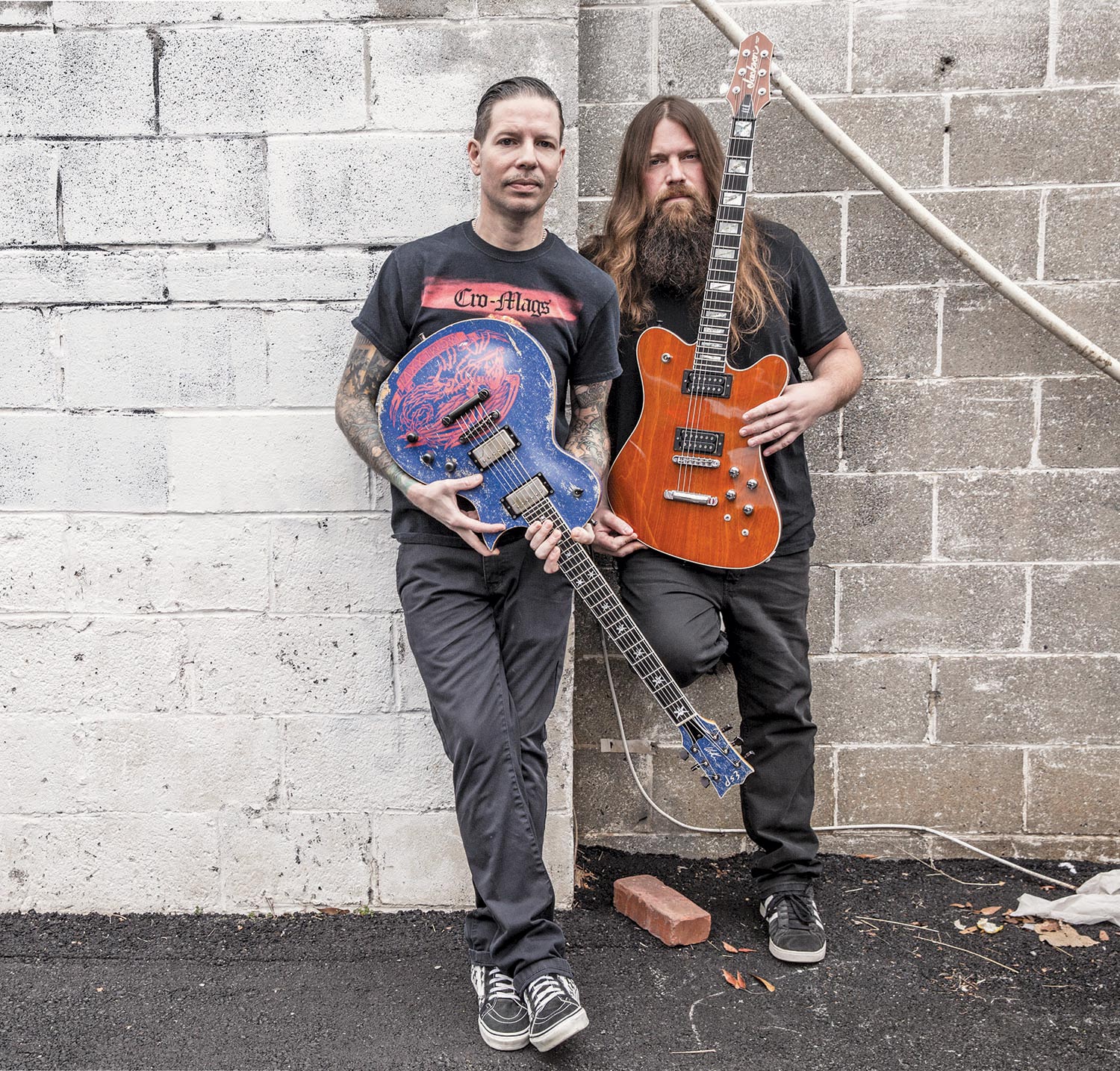
In 1994, five years before hardcore metal band Burn the Priest changed their name to Lamb of God, the group received few accolades for their music. Rather than getting discouraged, the musicians took the lack of adoration as a sign they were doing something right.
“We had no commercial aspirations whatsoever,” insists guitarist Mark Morton from his home near Williamsburg, Virginia. “The idea that we would evolve into what we are today would have been a laughable joke. We were a ‘case of beer club.’ It was all about going down to the basement, making a bunch of noise and drinking, and it was an excuse to do that on a Friday or Saturday night.”
Morton cofounded Burn the Priest with fellow Virginia Commonwealth University students Chris Adler (drums) and John Campbell (bass); the rest of the LOG team, vocalist Randy Blythe and guitarist Willie Adler (Chris Adler’s younger brother) had yet to join. Inspired largely by bands from Richmond, Virginia’s experimental scene, Burn the Priest played off-kilter, instrumental songs that were as likely to carom off the rails as maintain a propulsive groove.
“We were the drunkest, noisiest, most unlistenable basement band in town,” says Morton. He laughs and then continues. “We were called Burn the Priest for fuck’s sake!”
In addition to listening to hardcore and thrash, the band loved numerous death metal bands with blasphemous names. But that had nothing to do with their chosen moniker, which surfaced by happenstance. “We wrote a song that sounded scary and evil and I was like, ‘Damn, that’s some burn the priest shit!’ ” Morton says. “But the name was never meant to be Satanic or evil. I always thought it was just silly and kind of funny.”
Burn the Priest honed their chops by rehearsing regularly and playing basement parties. By 1995, when Blythe joined the group at the behest of his girlfriend after seeing one of the band’s shows, Burn the Priest started incorporating elements of unpredictability and danger into their already turbulent gigs. One time, everyone in the band took the darkened stage wearing miner’s hats with lights on the front and plowed through the show with impaired vision. Another concert lasted for just minutes before Blythe stagedived into a sparse crowd and knocked himself unconscious.
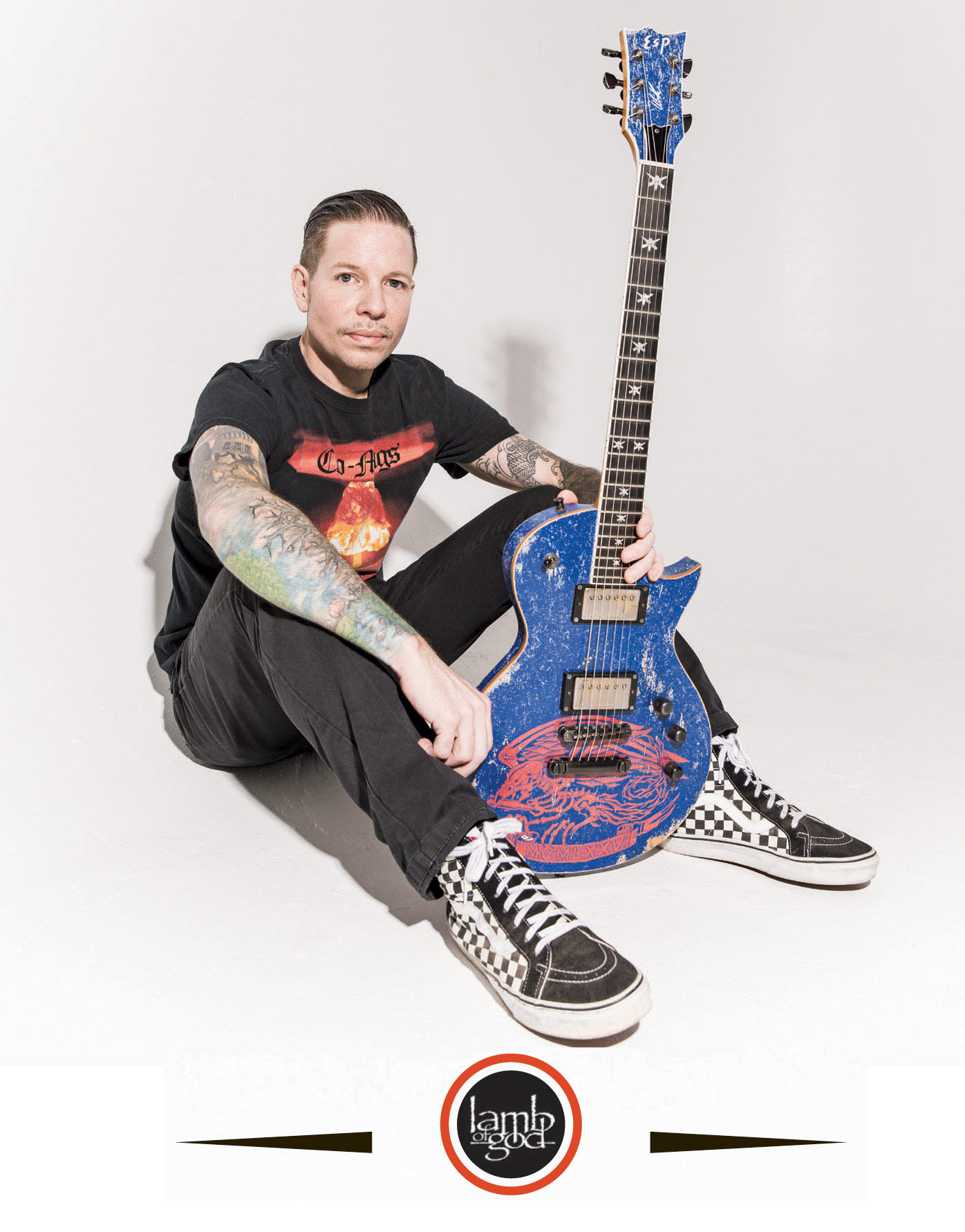
“I don’t think Randy’s entry into the band changed us musically,” Morton says. “But it certainly made for a more entertaining experience because Randy was, and still is, a consummate performer—and out of his skull, but in a very different way today than he was. Back then, there were bottles breaking, there was blood, there was spit. There was shit flying everywhere. And Randy was a big part of that.”
All the latest guitar news, interviews, lessons, reviews, deals and more, direct to your inbox!
Musically, Burn the Priest’s vacillation between rhythms that kicked and lunged like an old, backfiring car and passages that resembled radio static pierced with high-pitched feedback, was striking. As the band wrote more tunes, it gravitated in a more rhythmically complex, thrash-based direction with vocals rooted in hardcore. After posting a bunch of tracks on MP3.com and appearing on a couple of split EPs (with ZED and Agents of Satan, respectively), Burn the Priest released their self-titled album on Legion Records in 1999. Then they changed their name to Lamb of God.
Fast-forward two decades. To celebrate the 20th anniversary of Burn the Priest, the band has recorded Legion: XX, which features 10 covers of songs by hardcore, crossover and experimental outfits that inspired Lamb of God’s inflammatory hybrid of punk and metal: CroMags, Bad Brains, S.O.D., Agnostic Front, the Accused, Big Black, Quicksand, Ministry, Melvins and unsigned Richmond, Virginia, band Sliang Laos.
The latter band’s song, “Axis Rot,” is driven by jagged riffs and an offbeat tempo and was one of Morton’s favorites to record. “It’s a pretty tricky tune, but I’ve been waiting my whole life to play it because I loved that band and they were really influential to me,” he says.
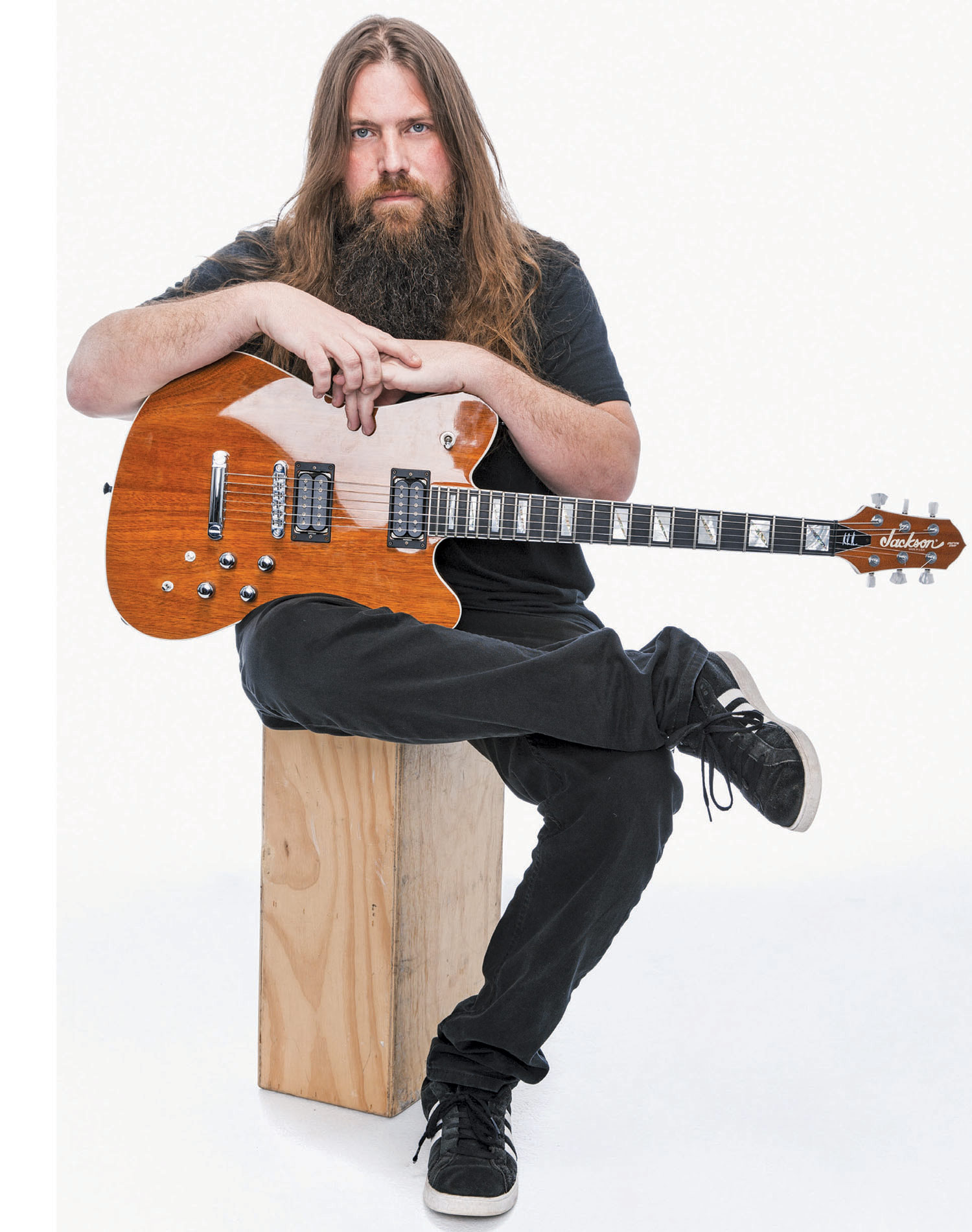
Guitarist Willie Adler’s favorite is Big Black’s “Kerosene,” partly because of its nostalgia value, but also since it required a bit of creativity to play. “When I was a kid, Chris had a Big Black cassette and I remember listening to it over and over,” Adler says. “But ‘Kerosene’ was never a metal tune. It wasn’t even punk. It was a bleak, industrial kind of song that had some melody, but no real riffs. So it took me a second to figure out what was going on. In the end, I wrote a few guitar parts that aren’t too much of a departure from the original song. It’s cool because I got to do a bit of my own writing when I was putting it together.”
Lamb of God had bounced around the idea of recording a covers album for several years, but the timing never seemed to be right. Then, during the interim period between the end of the tour for 2015’s VII: Sturm Und Drang and the beginning of the direct support tour for Slayer’s farewell run, they decided that, with the tie-in to Burn the Priest’s debut, conditions would never be better to bang out that covers record.
“Chris brought up us doing something reminiscent of [Metallica’s] Garage Days Re-Revisited,” Adler says. “In my mind, I hadn’t heard a great album of covers, where dudes put their own slant on things, since then. So we each came up with a list of eight to 10 songs and then narrowed it down.”
Once the final list of songs was chosen in the beginning of 2018, Adler started treating the tunes with Lamb’s trademark chug ’n’ squeal. To speed up the recording process, Chris Adler tracked his drum parts in Los Angeles with producer Josh Wilbur while Willie recorded rhythms at his home studio using his ESP Warbird through into Mesa/ Boogie Triple Crown, Mark IV and Vs. In a slight departure, Adler played a melodic solo with a shreddy end section for Agnostic Front’s “One Voice.”
“I’m not usually the lead guy,” he explains. “But it was fun and it was a good exercise for me. Having done that, I will probably dip my feet in that pond a little bit more. But for this album, Mark pretty much took those on, just like every album.”
Although Morton has been incorporating the flash of Dimebag Darrell, Kirk Hammett and Testament’s Alex Skolnick with the bluesy feel of Jimi Hendrix and Jimmy Page since Burn the Priest’s first album, there was a time when the guitarist stopped practicing scales almost entirely.
“In the early Nineties there were all these bands like Soundgarden, Jane’s Addiction, Melvins and Nirvana that brought these different worlds of loud music together that had a big impact on me,” he recalls. “At that point, I shifted gears from metal to basically playing in punk, alternative or grunge kinds of bands. Whereas two years before, I was trying to play like Alex Skolnick, now I was trying to play like Ian MacKaye [of Fugazi and Minor Threat]. Technical prowess went out the window and I went years without worrying about playing a lead. It was more about capturing a vibe and making noise and heavy riffs than it was about anything technical. That timeframe for me was so important in developing what would ultimately become the Lamb thing, which incorporates all of that.”
Morton tracked his rhythms and leads at his studio using his Jackson Dominion signature model, a Jackson Soloist and a Jackson Adrian Smith with the same Mesa/Boogies Adler used.
“It felt good to be able to take a couple passes at a tune and get a good take out of it,” Morton says. “I’m not taking anything away from the writers of these songs. But a lot of it was more straightforward than what we usually do, and that was fun because it underscored that what we were doing was something fun and different.”
When Morton and Wilbur were done recording, Wilbur worked with Campbell and Blythe. “We were able to do everything in about three weeks because everyone did his own thing,” Morton says. “No one in the band was in the same room at the same time, but listening to the album you’d never know it.”
Back in the Nineties, Burn the Priest never played any full covers during a show. The closest they came was a few bars of ZZ Top’s “Just Got Paid,” which they sometimes jammed on between songs. And Lamb of God have played Burn the Priest’s “Bloodletting” and “Duane,” as well as S.O.D.’s “United Forces,” live, but nothing else, according to setlist.fm. During the Slayer tour, Lamb of God plan to play the Accused’s “Inherit the Earth,” the first single from Legion: XX, and will likely throw in S.O.D.’s “Kill Yourself,” since the main members of that band—Anthrax drummer Charlie Benante and guitarist Scott Ian—are also booked for the whole tour and should be able to join them onstage.
Having played with Slayer countless times over the past 15 years, they befriended the thrash titans long ago. So Lamb of God were honored to be asked to play the band’s final shows. Reflecting on their time spent with Slayer brings up many memories the guitarists won’t talk about. After some head-scratching, Adler shares a safe-for-work anecdote about the first time Lamb opened for Slayer. “It was at the Astoria Theatre in London [in 2003],” he recalls. “We were traveling around in a Sprinter van with an Irish guy that nobody could understand, and we all partied our asses off. The first night of the mini-tour, Mark and I went out to watch Slayer. Mark had gotten a bottle of champagne. We just sat there the whole set and drank and screamed. It was pretty epic. We were doing two nights there, so after the show, we were kinda hammered so we went up to the tiny dressing room they allotted us and slept on our backpacks. Then we woke up and got ready for the next show.”
He pauses, as if doing so will make the image more vivid, then concludes, “We’ve all sat in that chair of being the fuckup at certain points over the years,” he says. “I was a rager, too, so I can look back at myself and Randy and say, ‘Golly, man, we could have just wrecked the ship at any point.’ It definitely made for some exciting nights and it’s fun to look back at, but I’m happy we’re all way past that now and focusing on what’s important.”
Jon is an author, journalist, and podcaster who recently wrote and hosted the first 12-episode season of the acclaimed Backstaged: The Devil in Metal, an exclusive from Diversion Podcasts/iHeart. He is also the primary author of the popular Louder Than Hell: The Definitive Oral History of Metal and the sole author of Raising Hell: Backstage Tales From the Lives of Metal Legends. In addition, he co-wrote I'm the Man: The Story of That Guy From Anthrax (with Scott Ian), Ministry: The Lost Gospels According to Al Jourgensen (with Al Jourgensen), and My Riot: Agnostic Front, Grit, Guts & Glory (with Roger Miret). Wiederhorn has worked on staff as an associate editor for Rolling Stone, Executive Editor of Guitar Magazine, and senior writer for MTV News. His work has also appeared in Spin, Entertainment Weekly, Yahoo.com, Revolver, Inked, Loudwire.com and other publications and websites.
